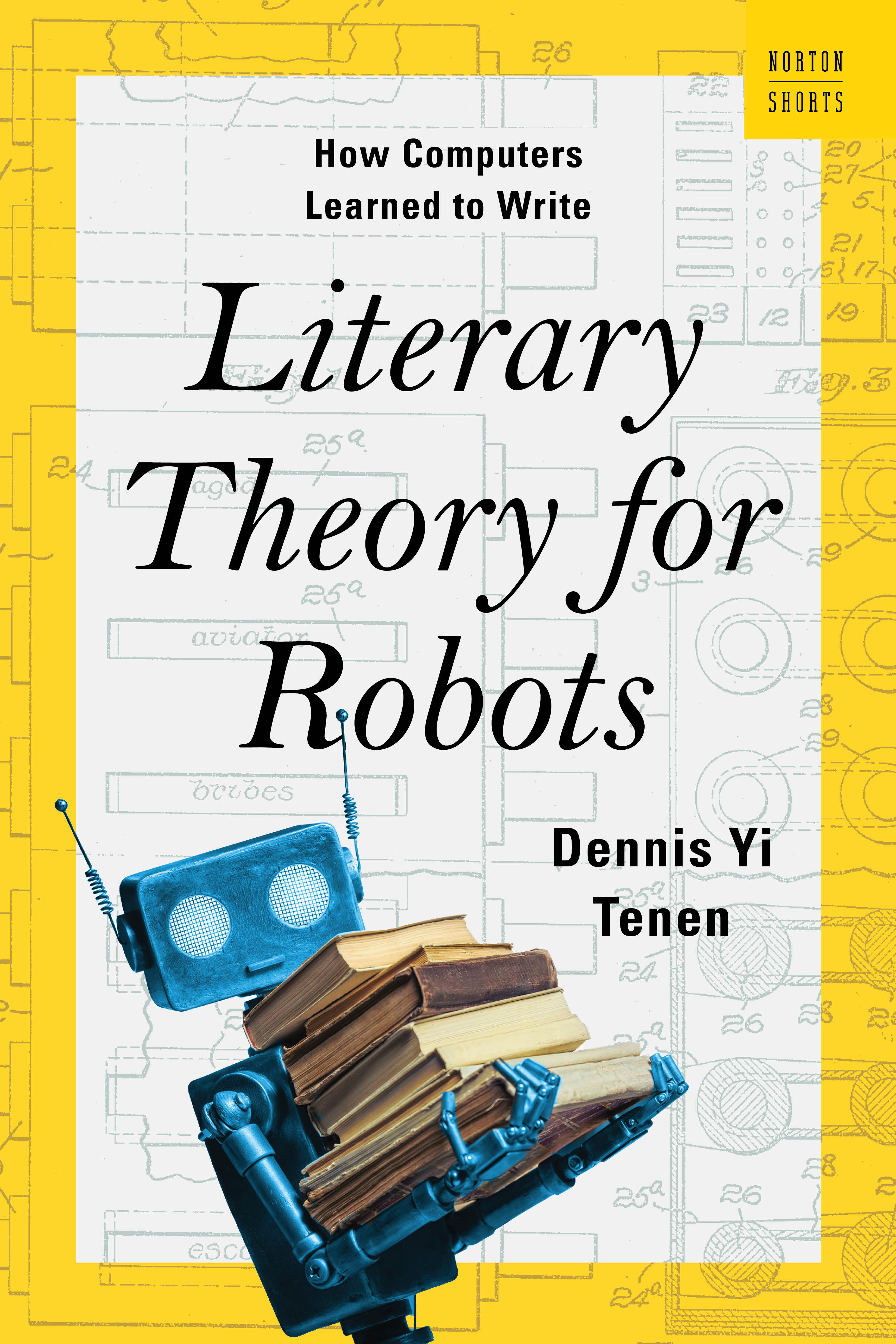Literary Theory for Robots
W. W. Norton, 2024
Surprising, funny and resolutely unintimidating… Tenen has figured out how to present a web of complex ideas at human scale.— Jennifer Szalai, New York Times Book Review
Timely and original, this is an essential resource on the history of text generating AI, and its future.— Publishers Weekly
Lucid, nuanced, and expert, with a fizzy sense of humor [...] over these swift 141 pages, Tenen describes a new lineage for machine intelligence, one that absorbs everything from Medieval Islamic astrology to Chomskyan grammar to the industrial manufacture of vermicelli.— Sean Michaels, The Baffler
An eclectic and erudite tale of how wide-eyed visions become smart, interactive tools.— Kirkus Reviews
Literary Theory for Robots helps us recognize that over time, the seemingly extraordinary fades into the ordinary, becoming yet another tool through which we think and write in conversation with others.— The Washington Post
Through his use of history and philosophy, Yi Tenen reminds us that technology cannot exist independently of its creators and users, and ultimately it is we humans who hold the final responsibility for technology’s impact on the world. This is a book that makes you a little wiser in realizing that responsibility.— John Warner, Chicago Tribune
A delightfully fresh perspective on AI.— Ben Schneiderman, 118th Note on Human-Centered AI
Two German baroque poets walked into a bar. Well, more like, one was a poet and the other a scholar. And they corresponded by letter. Athanasius Kircher, a neat man in his forties, spoke and dressed plainly. An established figure by the time of their virtual meeting, he was slated to take Johannes Kepler’s place at Habsburg court as the royal mathematician. In years past, he had taught mathematics and ancient languages at Würzburg. Fate found him at the Collegio Romano in Italy, where his research program expanded to cover geology, chemistry, and biology.
The eager attention from a flamboyant younger admirer clearly annoyed him. The gaunt Quirinus Kuhlmann struck an odd figure. A childhood speech impediment left him to pursue a career in letters with fervor. At the University of Jena, known as a bit of a party school in the early sixteen hundreds, he thought little of his peers or teachers. Instead of studying law as planned, he cultivated an image of a brooding poet, claiming to receive divine visions through illness and hallucination. Rumors of heresy circulated, as well as of his “colossal egotism.”
At stake in the virtual meeting between poet and scientist was Kircher’s recent invention called the Mathematical Organ. Made of polished, “artfully painted” wood, the Organ resembled a large box. Opening its lid revealed a row of labeled wooden slates, filed vertically: four columns of fifteen narrow slates, four columns of seven wider ones, and four columns of five of the largest pieces. When pulled out, each of the slates contained a string of letters. By consulting the included booklets—which he called, wait for it, applications—any combination of the planks cohered into a complete, harmonious composition. Cleverly, depending on which manual was consulted, the same organ could be used to compose music, write poetry or secret messages, and even do advanced math, such as reckoning the Easter calendar.
The conversation grew more heated with ale. Kircher took the same systematic approach to all his research projects. The box was made according to the latest scientific principles. He had recently sold a version of the device to the young Archduke Charles Joseph of Austria. The child would use it in his studies, with the help of a trusted tutor. Such devices, Kircher argued, were easy, delightful, and instructive. They were, above all, useful, allowing untrained operators to create and to perform. Technology was there to serve, making difficult knowledge accessible to a larger audience. Kuhlmann objected. The path to knowledge should remain tortuous, accessible only to those (like him!) willing to walk it properly. The box is just an ingenious game, my ingenious Kircher! Kuhlmann was starting to slur his words a little. The intelligence lies with you. Without the box, the young duke remains an idiotic parrot (I’m sorry, he really did write that, only in Latin). Nothing is retained on the inside. And without inward understanding, the child captures neither knowledge nor intelligence.